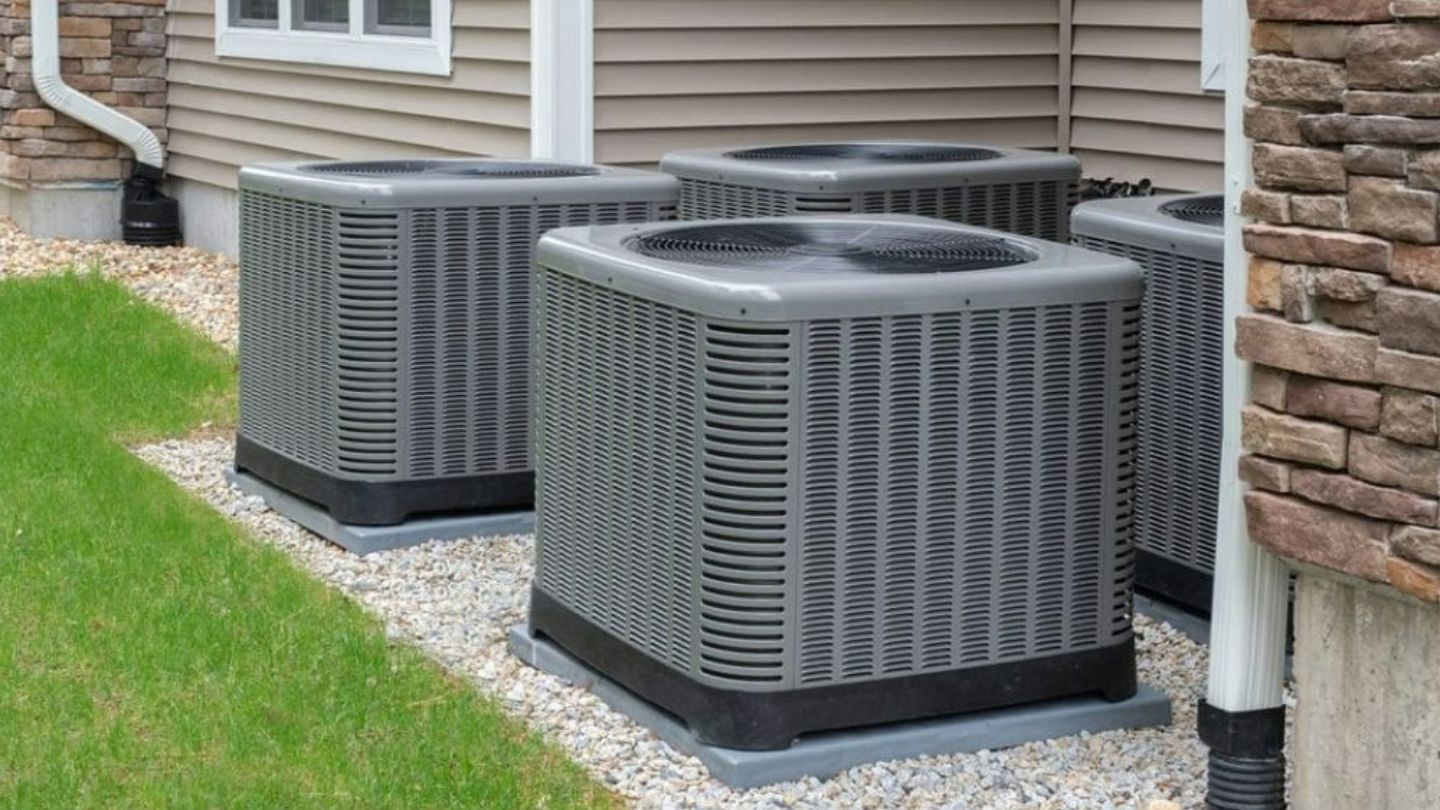How Air Conditioning Transformed Modern Living?
Air conditioning has fundamentally changed modern living by making homes more comfortable, workplaces more productive, and cities more livable. This blog will explore how air conditioning transformed modern living, as well as various aspects of our daily lives, from improving health outcomes to enabling technological advancements.
Key Takeaways
- The invention of modern air conditioning by Willis Carrier in 1902 revolutionized comfort in various environments, leading to significant improvements in both residential and commercial sectors.
- Air conditioning technology has been a key factor in enhancing workplace productivity and improving healthcare by maintaining optimal indoor conditions, thereby supporting overall well-being.
- The future of HVAC systems is focused on energy-efficient solutions and eco-friendly technologies that reduce environmental impact while ensuring optimal comfort and performance.
The Birth of Modern Air Conditioning
The story of modern air conditioning begins with Willis Carrier, whose groundbreaking invention in 1902 earned him the title of the “Father of Modern Air Conditioning.” Carrier’s first air conditioning system was designed to improve comfort in hot environments, making life more bearable for people and enhancing their overall well-being. His innovative approach utilized industrial fans and cold water coils, laying the foundation for future HVAC practices and significantly impacting the way we manage climate control in various settings.
Carrier’s innovation first controlled humidity and maintained printing quality at a printing plant. This application of mechanical refrigeration and mechanical cooling marked a pivotal moment in the history of air conditioning, demonstrating its potential to revolutionize not only comfort but also industrial processes. The technological advancements have since evolved, setting the stage for the modern air conditioning systems we rely on today, including advancements in refrigeration technology.
As air conditioning technology advanced, it became clear that its applications extended far beyond industrial settings. The influence of air conditioning on daily life was unfolding, heralding a new era of comfort and convenience.
Transforming Commercial Spaces
How ductless air conditioners enhance home comfort is evident in their ability to deliver targeted cooling, reduce energy loss, and provide customizable comfort zones for both residential and commercial spaces. The commercial sector was quick to embrace the benefits of air conditioning, with applications beginning to appear around 1940. Air conditioning was crucial in the rise of shopping malls, transforming them into popular summer destinations for a comfortable shopping experience. This technological advancement significantly contributed to the expansion of the retail industry, making it possible for stores to attract more customers and boost sales.
Air conditioning in commercial spaces improved customer comfort and revolutionized business operations. Chilled air transformed department stores and movie theaters, making them more inviting and enjoyable.
This section explores the impact of air conditioning on department stores and movie theaters, showing its transformative effects.
Department Stores
Installing air conditioning in department stores was a major milestone in retail history. This innovation quickly became a key factor in attracting customers, leading to rapid growth in store sales as more people were drawn to the comfortable shopping environment. The success of air conditioning in department stores paved the way for its adoption in other commercial spaces, further solidifying its importance in modern commerce.
Movie Theaters
Movie theaters were early adopters of air conditioning to enhance customer experience. Key developments include:
- Theaters experimented with early cooling technologies in the early 1900s to improve audience comfort and make theaters popular summer venues.
- In 1925, a theatre in New York City installed air conditioning, revolutionizing the moviegoing experience.
- This installation boosted the popularity of summer blockbusters.
Air conditioning transformed theaters into ideal summer heat destinations in hot weather states, attracting audiences eager to escape the hot weather and enjoy a cool, comfortable environment while watching their favorite films. This innovation enhanced the moviegoing experience and contributed to the film industry’s growth by drawing larger summer crowds, even amidst the hot air.
Enhancing Workplace Productivity
Air conditioning has significantly enhanced workplace productivity. Willis Carrier’s 1902 invention of modern air conditioning transformed industrial processes by stabilizing worker environments. This innovation maintained cognitive function and prevented productivity drops in hot conditions, underscoring air conditioning’s workplace importance.
Research shows air conditioning enhances employee productivity by reducing discomfort and creating a conducive work environment. Employees in air-conditioned offices report higher morale and satisfaction, with productivity increases of at least 25%. By mitigating the adverse effects of extreme temperatures, air conditioning helps maintain focus and efficiency, contributing to overall workplace performance.
Air conditioning benefits extend to industrial facilities, where optimal temperatures are crucial for machinery and workers. This section examines the impacts on office buildings and industrial facilities, showing how air conditioning is essential in modern workplaces.
Office Buildings
Central air conditioning systems in office buildings enhance indoor comfort and employee morale. These systems’ introduction significantly improved the work atmosphere, leading to higher satisfaction and productivity. By maintaining a stable indoor climate, central air conditioning helps employees stay focused and comfortable, which is crucial for efficient performance.
The benefits of air conditioning in office buildings are clear, creating a more pleasant and productive environment for employees. This improvement in workplace conditions has a direct impact on overall business performance, making air conditioning an indispensable asset for modern offices.
Industrial Facilities
In industrial settings, air conditioning maintains optimal temperatures, prevents machinery overheating, and enhances efficiency. The textile industry was an early adopter of modern air conditioning and artificial cooling, significantly improving production lines with a controlled manufacturing environment.
Air conditioning enhances safety in industrial facilities by preventing heat-related incidents among workers. By ensuring a comfortable and safe environment, air conditioning maintains productivity and reduces accident risks, making it essential in industrial operations.
Impact on Healthcare

Air conditioning’s impact on healthcare is profound. In hospitals, maintaining optimal indoor air temperature and controlling humidity is crucial for patient care, and air conditioning systems ensure this. Controlling the indoor environment, air conditioning creates a comfortable and safe space for patients, essential for recovery and well-being.
Proper management of air conditioning systems is necessary to prevent inadequate ventilation, reducing infection risks in hospitals. HEPA filters in air conditioning systems effectively reduce airborne pathogens, enhancing indoor air quality, air circulation, and reducing infections in hospitals.
Air conditioning in hospitals significantly decreases airborne infections, highlighting its critical role in patient care. HVAC systems are essential for maintaining a healthy indoor environment in healthcare settings, including hospital rooms. By enhancing air quality and providing comfort, air conditioning systems significantly contribute to patient care and safety.
Read more: The Impact of HVAC Systems on Indoor Air Quality: Insights for Healthier Living
Supporting Technological Advancements
Air conditioning has enabled technological advancements, especially in data centers and manufacturing. Key points include:
- Data centers require a temperature range of 16°C to 24°C (61°F to 75°F) for efficient operation.
- Air conditioning systems maintain these temperature conditions.
- Air conditioning supports digital infrastructure by ensuring optimal performance and reliability of data services.
In manufacturing, air conditioning controls air quality, which is crucial for producing sensitive components like silicon chips. Providing a controlled environment, air conditioning maintains quality and efficiency in manufacturing, supporting technological advancements.
Urbanization and Architectural Changes
Air conditioning has been crucial in urbanization, enabling taller buildings and more livable urban spaces. Air conditioning technology revolutionized architecture, enabling climate-controlled environments and previously unimaginable structures. This innovation is especially important in hot climates, enabling skyscraper and large building construction.
Building material choices have evolved due to air conditioning demands, focusing on better insulation and thermal performance. Thicker walls and higher ceilings are common in buildings designed for hot climates, better suiting them for air conditioning.
Environmental Considerations
Air conditioning’s environmental impact is a significant concern today. Air conditioning contributes about 3.94% of global greenhouse gas emissions, mainly due to energy consumption and refrigerants. Humidity control in air conditioning accounts for about half of energy-related emissions, highlighting the need for energy-efficient solutions to address the humidity problem.
Manufacturing and transporting air conditioning systems also contribute to greenhouse gas emissions, adding to their environmental footprint. As global temperatures and humidity rise, air conditioning demand is projected to increase, leading to an anticipated eightfold rise in energy consumption by 2050. This could significantly increase carbon emissions, especially in hotter climates where air conditioning is more prevalent, exacerbating the effects of climate change.
Innovations in air conditioning technology focus on energy efficiency. These aim to address environmental concerns and promote sustainability. Future air conditioning technologies aim to reduce the carbon footprint by using eco-friendly refrigerants, integrating renewable energy sources, and optimizing system designs to separate cooling and humidity control.
Future Trends in Air Conditioning Technology
The future of air conditioning technology looks promising, with innovations aimed at improving energy efficiency and reducing environmental impact. Smart thermostats have revolutionized home cooling with features like geofencing and learning algorithms to optimize temperature settings and enhance energy savings. These advancements offer personalized comfort while significantly improving energy efficiency.
Eco-friendly technologies and methods gaining popularity in HVAC systems include:
- Eco-friendly refrigerants like R-32 and R-290 to reduce air conditioning’s environmental impact
- Integration of renewable energy sources, including solar and wind power, to decrease dependence on fossil fuels
- Adoption of geothermal cooling systems to significantly reduce carbon emissions
The rise of modular and hybrid HVAC systems is aimed at achieving better performance and efficiency in temperature control. These systems are designed to be more flexible and adaptable, meeting the diverse needs of modern buildings while minimizing their environmental footprint. As these technologies continue to evolve, the future of air conditioning looks bright, with a focus on sustainability and efficiency.
Choosing the Right HVAC System

Selecting the right HVAC system for your home involves considering various factors such as the size of your home, energy efficiency, and local climate conditions. The right size HVAC unit is determined by:
- The age of the home
- Number of windows
- Room sizes
- Average climate
- Building insulation
Air conditioners are sized based on their cooling capacity, measured in British thermal units per hour (Btu/hr) or tons, utilizing ice-cooled air and cooling units.
When installing a new system, ensuring proper ductwork design is crucial for effective cooling and energy efficiency. The efficiency of air conditioners is rated by the seasonal energy-efficiency ratio (SEER), with higher ratings indicating better efficiency. High-efficiency HVAC systems installed by Total Comfort Cooling & Heating use less energy to cool or heat a home, leading to lower monthly costs and significant energy savings, especially when integrated into an energy-efficient system.
Ductless systems, also known as mini-split systems, offer a flexible and energy-efficient alternative to traditional central air conditioning systems and home cooling systems. Heat pumps can serve as both a heating and cooling solution, making them a versatile option for many homes. By considering these factors and options, homeowners can choose an HVAC system that meets their needs while maximizing energy efficiency and comfort.
Importance of Regular HVAC Maintenance
Regular HVAC maintenance is essential for optimal performance and longevity of your air conditioning system. Maintenance tasks such as cleaning coils and checking for refrigerant leaks can prevent breakdowns and ensure that the system operates efficiently. Annual servicing is important to maintain the efficiency and prevent unexpected repairs, which can be costly.
Investing in regular maintenance is more economical than facing unexpected repairs or replacing HVAC units prematurely. Routine maintenance by Total Comfort Cooling & Heating can significantly extend the lifespan of HVAC equipment, reducing the need for backup systems and enhancing overall efficiency. Homeowners who perform regular maintenance can enjoy significant energy savings, with reports indicating reductions in energy usage ranging from 41% to 60%.
Regular maintenance services are available to help homeowners keep their HVAC systems in top condition. By catching issues early and performing necessary upkeep, homeowners can ensure their systems remain efficient and reliable for years to come.
Total Comfort Cooling & Heating Services
Total Comfort Cooling & Heating has been providing top-notch HVAC services in Port Charlotte since 2001. The company offers 24/7 emergency services to address urgent heating and cooling needs, ensuring that customers remain comfortable regardless of the time of day or night. With tailored HVAC installations, Total Comfort Cooling & Heating meets the unique requirements of both residential and commercial spaces, providing customized solutions for optimal comfort.
To make HVAC services more accessible, Total Comfort offers financing options, making it easier for customers to invest in their comfort without breaking the bank. When choosing an HVAC contractor, it’s crucial to select a reliable provider like Total Comfort Cooling & Heating that offers thorough load calculations and holds valid certifications.
With their commitment to quality and customer satisfaction, Total Comfort Cooling & Heating is the go-to choice for all your HVAC needs.
Wrapping Up
Air conditioning has come a long way since Willis Carrier’s invention in 1902, transforming modern living in countless ways. From revolutionizing comfort at home and transforming commercial spaces to enhancing workplace productivity and supporting technological advancements, air conditioning has become an indispensable part of our lives. The impact on healthcare, urbanization, and architecture further underscores its significance.
As we look to the future, the focus on energy efficiency and sustainability will drive innovations in air conditioning technology. By choosing the right ductless AC in Port Charlotte and maintaining it regularly, homeowners and businesses can enjoy the benefits of this remarkable technology while minimizing its environmental impact. Total Comfort Cooling & Heating is here to help you navigate these choices, ensuring you stay comfortable and energy-efficient in the years to come.
We also offer ductless AC in Boca Grande, Burnt Store, El Jobean, Manasota, North Port, and surrounding areas. In addition to ductless AC, we provide a range of services, including air conditioners, furnaces, air handlers, and related commercial services. Contact us today to upgrade to modern living.
Frequently Asked Questions
What is the average lifespan of an HVAC system?
The average lifespan of an HVAC system is typically between 12 and 15 years. It’s important to monitor its performance and consider replacement as it approaches this age range.
How often should HVAC maintenance be scheduled in Port Charlotte?
HVAC maintenance in Port Charlotte should be scheduled twice a year to ensure optimal performance and longevity of the system. Regular maintenance helps identify any issues before they become serious problems.
What are the benefits of regular HVAC maintenance?
Regular HVAC maintenance improves system efficiency, prolongs the lifespan of the unit, and reduces the likelihood of expensive repairs by identifying potential issues early.
What factors are considered to determine the right size HVAC unit for a home?
The right size HVAC unit for a home is determined by factors such as the age of the home, the number of windows, room sizes, average climate, and insulation levels. Ensuring these elements are considered will lead to more efficient heating and cooling.
What is a key advantage of high-efficiency HVAC systems?
A key advantage of high-efficiency HVAC systems is their ability to reduce energy consumption, which results in lower monthly utility bills. This not only saves money but also contributes to a more environmentally friendly home.
READY FOR YOUR NEXT HEATING OR COOLING PROJECT?
Contact us to get a quote and see why our customer service is recognized as the best in the industry.






 Special Offer: 12 Months - No Interest, No Payments!
Special Offer: 12 Months - No Interest, No Payments!